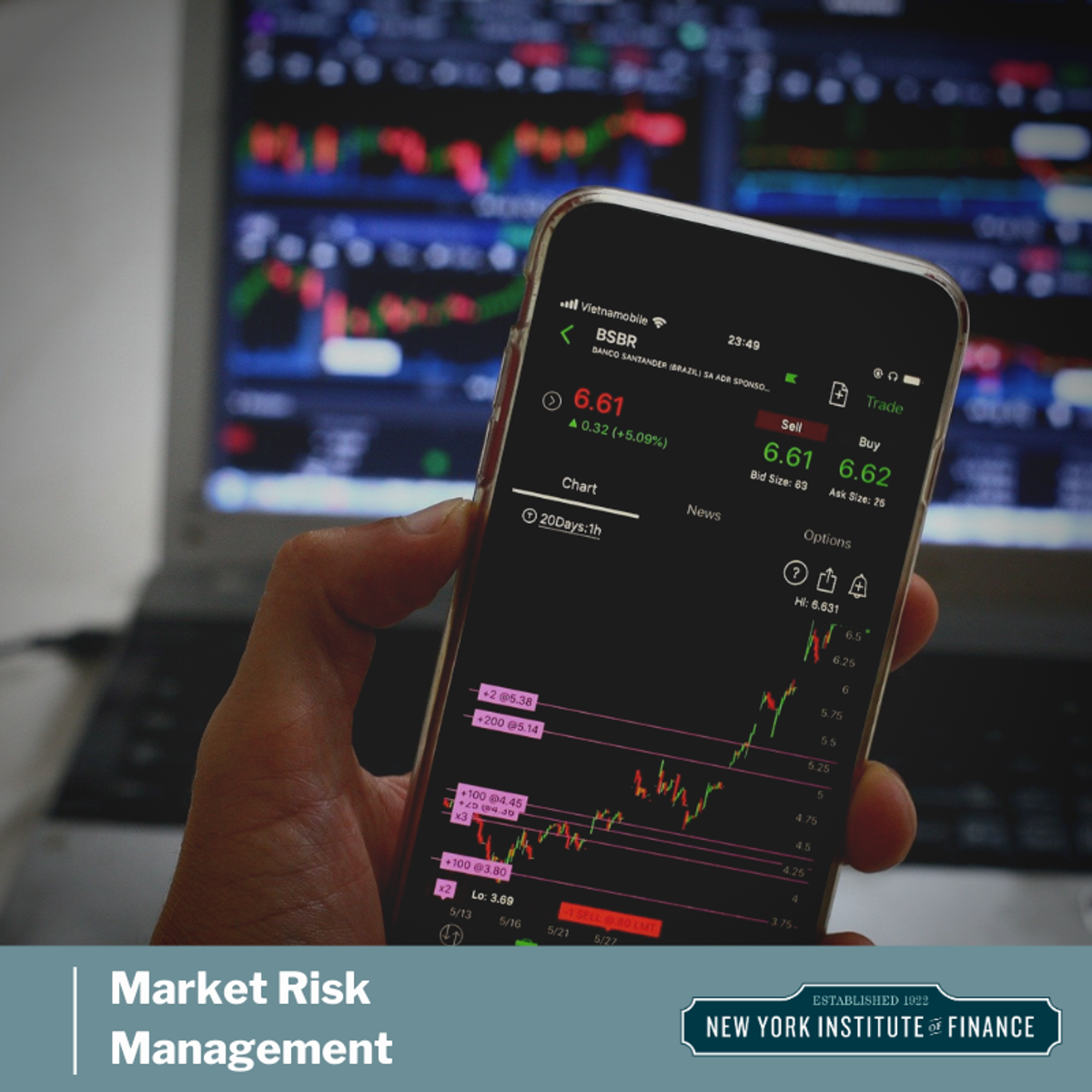Back to Courses









Business Courses - Page 35
Showing results 341-350 of 2058

Measure a Marketing Strategy using Facebook Insights
By the end of this project, learners will have a better understanding of ways they can enhance their Facebook Marketing strategies, which will ultimately improve users' Facebook Insights.
We will take an in-depth look at how to incorporate marketing strategies that will more likely enhance overall analytics, and learners will develop a deeper understanding of how to use Facebook Insights to track and measure strategic marketing efforts. Having this knowledge, allows Facebook users to more easily adapt and update strategies according to Insight results to get the most out of their Facebook strategy.
Note: This course works best for learners who are based in the North America region. We’re currently working on providing the same experience in other regions.

Recruiting, Hiring, and Onboarding Employees
Finding and hiring the right people is often cited as the number one concern of businesses today. It seems we are all competing for the best and brightest workers. As you will see in our time together in the second course, a critical component of the People Manager Value Proposition is to hire talented people who enable the organization to achieve its strategic goals. This course is an introduction into the topic of recruitment, selection and onboarding.
At the outset of the course we will explore the importance of linking recruitment goals with overall company strategy. We then look at a number of options to recruit and select employees both effectively and legally. Throughout the course we will examine current issues in talent acquisition, such as how companies are now leveraging social media and hiring analytics to ensure better quality hires.
At the conclusion of the course, we look at how to onboard employees to promote employee commitment and engagement.

Introduction to Digital Marketing
Although traditional marketing strategies are still used, companies continue to shift their focus to digital approaches such as search engines, social media. These technologies take into account the journey of the customer and how they make their purchase decisions. It is important for marketers to have an understanding of digital marketing strategies and familiarize themselves with the key technologies underlying them. This course will offer students a panoramic view of digital marketing and provide insights into key strategies using Internet-based platforms. In addition, it will focus on content that resonates with consumers that helps businesses differentiate themselves in competitive markets.

How to design Facebook/IG Stories using Canva
In this 1-hour long project-based course, you will learn how to create designs for Instagram/Facebook stories using Canva. We will use the Canva platform to create social media(Instagram and Facebook) stories using built-in templates as well as from the scratch. This course includes Canva introduction, exploration of Canva dashboard, you will learn to use different elements from Canva, creation of social media stories using built-in templates, and from the scratch. You will also learn how you can use free images from a third-party source like Pixabay.
Note: This course works best for learners who are based in the North America region. We’re currently working on providing the same experience in other regions.

Professional Skills for International Business
This course provides insight into the key professional skills needed by managers at all levels of an organisation. You’ll learn key skills such as how to make a positive first impression; how to become a role model at work; effective time and resource management; and networking.
This course forms part of a specialisation from the University of London designed to help you develop and build the essential business, academic, and cultural skills necessary to succeed in international business, or in further study.
If completed successfully, your certificate from this specialisation can also be used as part of the application process for the University of London Global MBA programme, particularly for early career applicants. If you would like more information about the Global MBA, please visit https://mba.london.ac.uk/.
This course is endorsed by CMI

Simulation Skills: This is Your Brain on the Future
Do you want to learn how to simulate the future more creatively and more effectively? This course is for you.
Humans are the only living creatures with the ability to think about and make plans for the long- term future. Even so, our brains don’t always make it easy. Over the past decade, scientists have discovered a number of neurological “road blocks” to effective futures thinking. These glitches in the brain make it harder for us to accurately predict how we’ll feel and what we’re likely to do, when a particular future arrives. They lead us to make faulty assumptions about which futures are likely or unlikely to happen. And they convince us we have less power to shape and influence the future than we actually do – leaving us stuck in the present.
In this course, you’ll learn how to overcome these obstacles so you can think about the future more strategically and creatively. You’ll practice simulation techniques for “unsticking” the mind when it comes to seeing what’s possible in the future and accepting how things could be different. You’ll also learn how to lead others through “first-person future” simulations, which have been shown in scientific studies to improve strategy and increase motivation and hope for the future. Along the way, leading futurists from the Institute from the Future will share some of their most challenging forecasts to help you stretch your imagination and improve your simulation skills.
This course will ensure that you can put all of your new forecasting skills to the best possible use, by helping you nudge your brain toward more effective ways of simulating and preparing for the future.
Many thanks to the Enlight Foundation and the Enlight Collaborative, which provided a grant to support the creation of this course.

Market Risk Management: Frameworks & Strategies
This course provides the foundation for understanding the frameworks used to develop market risk management strategies. You will identify the market risks associated with each type of financial instrument. You will be introduced to techniques for estimating the risk associated with each class of investments. By the end of the course, you will be able to select the most effective derivatives for managing risk of a single asset and a portfolio of assets, develop asset selection strategies for managing risk in a portfolio, and model risk associated with a single asset and a portfolio of assets.
Learners will complete a project covering the estimation and analysis of risk in a globally diversified equity portfolio. The portfolio will include allocations of equity indexes from the U.S., Japan, Hong Kong, and Germany. Data for the two years prior to March 2020 will be used to convert daily returns in each indexes' currency into dollar returns. Value-at-Risk and Expected Shortfall for the portfolio will be calculated using an equal-weighted sample and an exponentially weighted sample. Learners will then be given a new 2-year data set that includes the market data through August of 2020. They will be asked to re-evaluate risk for the portfolio using Value-at-Risk and Expected Shortfall.

ESG Investing: Industry Impacts & Transformations
Through this ESG Investing: Industry Impacts & Transformations course, students with basic knowledge of traditional financial products can explore how certain financial market sectors have been transforming, amid a heightened focus on risk factors that underpin the three pillars of ESG. For example, what led age-old, iconic companies such as Borden and Dean Foods to file for bankruptcy? How are traditional oil giants BP and Exxon Mobil managing the energy transition? And what steps are firms such as International Paper and WestRock taking to align their business operations with forestry concerns? Through a series of video, webinar, and reading modules, among other objectives, you’ll learn how to conduct critical analyses about certain market sector changes, including dairy, tobacco, energy, and forest products, as well as examine the potential role for certain commodities, as industries such as the auto sector undergo transformation. You should also be able to assess the potential impacts on the creditworthiness of certain high yield companies amid shifts in ESG strategies.
Global Challenges in Business Capstone
The capstone for the Global Challenges in Business specialization will provide a learning experience that integrates across all the courses within that specialization. It will involve analysis of a situation concerning an actual business with a view to work toward a global stakeholder engagement business plan for introduction of a new product. Students will analyze a situation taking the vantage point of a global company and develop a global stakeholder engagement plan for a specific geography (chosen by students’ region or country of residence, or other consideration).

The Business of Product Management I
Learn to excel in product management roles while learning directly from industry-leading product managers and real-world case studies from Amazon, Intuit, Procter and Gamble, Barnes and Noble, Whole Foods, Google, Twitter, Tesla, Dropbox, Eventbrite, Blue, Samson, Coffee Meets Bagel, Mixpanel, and more!
Featuring expert product manager instructors including:
* NANCY WANG, Head of Data Protection Services, Amazon Web Services; Founder and CEO, Advancing Women in Product
* WAYNE DUSO, Vice President for Edge Computing, File Services, and Data Services, Amazon Web Services
* ARUM KANG, Co-Founder & CEO, Coffee Meets Bagel
* AMIR MOVAFAGHI, CEO, Mixpanel; former Global Head of Business of Operations, Twitter.
Sponsored by AMAZON WEB SERVICES (AWS).
This is the first of four courses in the ACE Recommended Real-World Product Management Specialization. When you complete all four courses, you can earn up to 6 college credits.
Popular Internships and Jobs by Categories
Browse
© 2024 BoostGrad | All rights reserved


